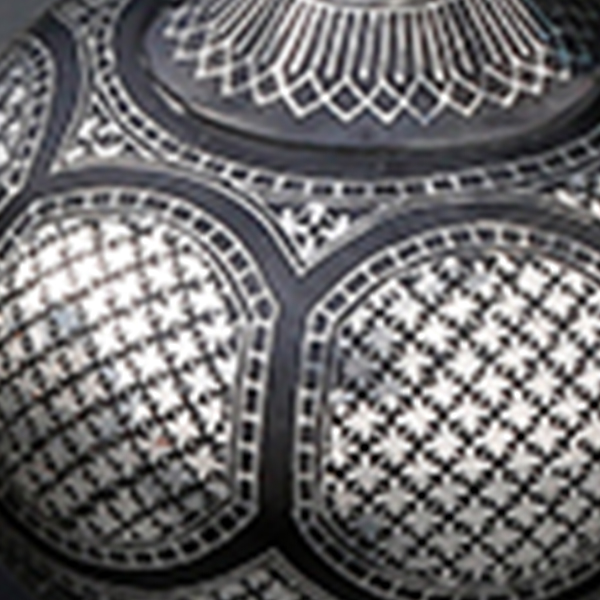
Map Loading...
Bidri Ware
BIDAR
Bidri Kala | విద్రీ కళ | बिदरी कला
A metal handicraft from the Bidar area in Karnataka, the origin of Bidri Ware as a craft is attributed mostly to the Bahamani Sultans who ruled the region during the 14th and 15th centuries. Beautifully delicate inlay work of silver, and gold, on strikingly black alloyed metal leaves the onlooker hooked to its elegant beauty.
The craft was developed as a family business among artisans’ families, where even women take part in the making of the metal ware. It is practised mostly in Karnataka, and Andhra Pradesh these days.
Sultan, who belongs to a Bidri crafting family, explains the process. Bidri Ware is manufactured from an alloy of copper, and zinc (in the ratio 1:16) by casting. The zinc content gives the alloy a deep black colour. The craftsman uses small chisels to engrave the design over the freehand etching. Fine wire or flattened strips of pure silver are then carefully hammered into these grooves. A special variety of soil which is available only in the unlit portions of the Bidar fort is used for the final blackening process. It is mixed with ammonium chloride, and water to produce a paste which is then rubbed onto a heated Bidri surface. The paste selectively darkens the body while it has no effect on the silver inlay.
Material
cast iron and silver
Technique
Metal Engraving
Showcase



